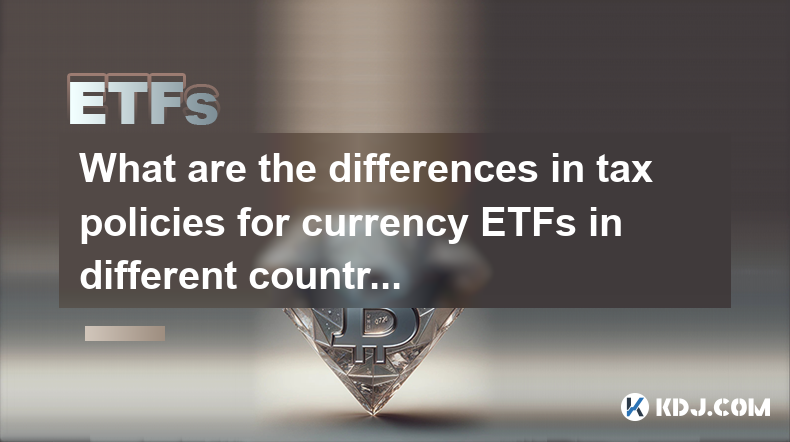-
 Bitcoin
Bitcoin $84,384.8183
-1.07% -
 Ethereum
Ethereum $1,575.4217
-2.16% -
 Tether USDt
Tether USDt $1.0000
0.01% -
 XRP
XRP $2.0513
-1.44% -
 BNB
BNB $587.7666
-0.46% -
 Solana
Solana $136.1987
-1.90% -
 USDC
USDC $0.9999
-0.01% -
 TRON
TRON $0.2449
1.47% -
 Dogecoin
Dogecoin $0.1531
-3.16% -
 Cardano
Cardano $0.6115
-1.84% -
 Chainlink
Chainlink $13.1143
2.54% -
 UNUS SED LEO
UNUS SED LEO $9.3289
0.19% -
 Avalanche
Avalanche $19.3767
-1.94% -
 Toncoin
Toncoin $2.9937
0.90% -
 Stellar
Stellar $0.2413
-1.97% -
 Shiba Inu
Shiba Inu $0.0...01238
1.50% -
 Hedera
Hedera $0.1638
-1.14% -
 Sui
Sui $2.0935
-2.40% -
 Bitcoin Cash
Bitcoin Cash $332.2596
-0.98% -
 Polkadot
Polkadot $3.8775
3.68% -
 Hyperliquid
Hyperliquid $17.3658
-3.92% -
 Litecoin
Litecoin $76.0310
0.32% -
 Dai
Dai $1.0000
0.00% -
 Bitget Token
Bitget Token $4.3896
-3.25% -
 Ethena USDe
Ethena USDe $0.9993
0.01% -
 Pi
Pi $0.6275
-2.84% -
 Monero
Monero $216.5762
1.82% -
 Uniswap
Uniswap $5.2230
-0.81% -
 Pepe
Pepe $0.0...07465
1.17% -
 Aptos
Aptos $4.9923
2.61%
What are the differences in tax policies for currency ETFs in different countries or regions?
Tax treatment of currency ETFs varies globally, with different policies in place for the US, UK, EU, Canada, and the Asia-Pacific region, impacting capital gains, dividends, and withholding taxes.
Jan 06, 2025 at 04:39 am

Key Points:
- Understanding Currency ETFs: Overview of currency ETFs, their purpose, and how they are different from traditional currency trading.
- Taxation Principles: General principles of taxation applicable to currency ETFs, including capital gains tax, withholding tax, and dividend tax.
Country-Specific Regulations: Examination of tax policies for currency ETFs in specific countries or regions, including:
- United States
- United Kingdom
- European Union
- Canada
- Asia-Pacific Region
- Tax Treatment of Different Types of Currency ETFs: Distinctions in tax treatment based on the underlying currencies and investment strategies of currency ETFs.
- Considerations for Investors: Practical implications of tax policies for investors in currency ETFs, including residency, tax brackets, and investment objectives.
Differences in Tax Policies for Currency ETFs in Different Countries or Regions
United States
- Currency ETFs are generally taxed as exchange-traded funds (ETFs).
- Capital gains tax is levied on profits realized from the sale of currency ETFs held for more than one year at a preferential rate (currently 15%).
- Dividend income from currency ETFs is taxed as ordinary income and may be subject to withholding tax in the country where the ETF is domiciled.
- Exchange-rate fluctuations may trigger additional capital gains or losses.
United Kingdom
- Currency ETFs are taxed as funds within the Onshore Alternative Investment Funds (OIAIF) regime.
- Capital gains tax is applied to proceeds from the sale of currency ETFs held for more than 30 days at a flat rate of 20%.
- Income from currency ETFs, including dividends and currency conversion gains, is subject to corporation tax at 19%.
- Investors may be eligible for certain tax reliefs, such as the foreign dividend exemption.
European Union
- Currency ETFs domiciled within the European Union are subject to the UCITS (Undertakings for Collective Investment in Transferable Securities) directive.
- Capital gains tax on currency ETFs is determined by individual EU member states and may vary.
- Withholding tax on dividend income may apply in the country where the ETF is domiciled.
- Tax treatment may differ for currency ETFs investing in non-EU currencies.
Canada
- Currency ETFs are considered mutual funds for tax purposes.
- Capital gains tax is applied to proceeds from the sale of currency ETFs held for more than one year at a preferential rate (currently 50% inclusion rate).
- Dividends from currency ETFs are eligible for the dividend tax credit, which reduces the tax payable.
- Exchange-rate fluctuations may result in unrealized capital gains or losses.
Asia-Pacific Region
- Tax policies for currency ETFs vary significantly across the Asia-Pacific region.
- In Australia, currency ETFs are generally treated as managed investment schemes for tax purposes, with capital gains tax applied at a concessional rate.
- In Japan, currency ETFs are subject to withholding tax on dividend income, while capital gains tax is only applicable if the investment is held for less than five years.
- In Singapore, currency ETFs are not subject to withholding tax or capital gains tax.
Tax Treatment of Different Types of Currency ETFs
- Currency-Hedged ETFs: These ETFs aim to minimize currency risk by hedging their exposure to foreign currencies. In many jurisdictions, capital gains realized from currency-hedged ETFs may be eligible for preferential tax treatment.
- Unhedged ETFs: These ETFs provide direct exposure to foreign currencies and are subject to capital gains tax based on currency fluctuations.
- Multi-Currency ETFs: These ETFs invest in a basket of currencies, offering diversified exposure. Taxation may vary depending on the composition of the underlying currencies and the investment strategy employed.
Considerations for Investors
- Residency: Tax policies may vary significantly depending on the country of residence. Investors should consult local tax authorities to determine the applicable tax rules.
- Tax Brackets: Capital gains tax rates may vary based on the investor's tax bracket. Higher earners may face higher tax rates on gains from currency ETFs.
- Investment Objectives: Investors should consider their investment objectives and risk tolerance when evaluating the tax implications of currency ETFs.
Disclaimer:info@kdj.com
The information provided is not trading advice. kdj.com does not assume any responsibility for any investments made based on the information provided in this article. Cryptocurrencies are highly volatile and it is highly recommended that you invest with caution after thorough research!
If you believe that the content used on this website infringes your copyright, please contact us immediately (info@kdj.com) and we will delete it promptly.
- Pi Network (PI) Price Prediction: It Could Get Ugly
- 2025-04-21 00:25:13
- Dogecoin (DOGE) Holders Celebrate Doge Day on April 20, 2025, as the Community Awaits a Possible DOGE ETF
- 2025-04-21 00:25:13
- A renewed wave of optimism is spreading through the Dogecoin market
- 2025-04-21 00:20:13
- Solana (SOL) Price Wedged Between Two Crucial Levels, Breakout or Breakdown?
- 2025-04-21 00:20:13
- Bitcoin BTC/USD, Ethereum ETH/USD, XRP XRP/USD, and Dogecoin DOGE/USD Moved Sideways Amid Tariff Uncertainties
- 2025-04-21 00:15:12
- The Solana Price Was One of the Few Highlights
- 2025-04-21 00:15:12
Related knowledge

What role does SEC play in Bitcoin ETF approval?
Feb 25,2025 at 06:48am
Key Points:SEC's Role in Bitcoin ETF Approval ProcessHistorical Efforts to Establish a Bitcoin ETFSEC's Criteria for Bitcoin ETF ApprovalPotential Impact of a Bitcoin ETF on the Cryptocurrency MarketTimeline and Outlook for Bitcoin ETF ApprovalArticle:SEC Play in Bitcoin ETF ApprovalThe United States Securities and Exchange Commission (SEC) plays a crit...

Who is eligible to issue Bitcoin ETFs?
Feb 25,2025 at 11:13am
Key Points:Only regulated financial institutions with the necessary expertise and infrastructure are eligible to issue Bitcoin ETFs.The Securities and Exchange Commission (SEC) has not yet approved any spot Bitcoin ETFs, but has approved several futures-based ETFs.Applicants must meet stringent requirements, including having a strong track record and su...

What impact does Bitcoin ETF have on the market?
Feb 25,2025 at 11:37am
Key Points:Introduction to Bitcoin ETFs and their role in the cryptocurrency marketHistorical development and performance of Bitcoin ETFsPotential benefits of Bitcoin ETFs for investors and the marketRisks and limitations associated with Bitcoin ETFsRegulatory considerations and their impact on Bitcoin ETFsArticle:Introduction to Bitcoin ETFsBitcoin exc...

Which investors are Bitcoin ETFs suitable for?
Feb 27,2025 at 04:01pm
Key Points:Understanding Bitcoin ETFsBenefits of Bitcoin ETFsSuitability of Bitcoin ETFs for Different InvestorsAssessing Risk Tolerance and Investment GoalsConsidering Short-Term and Long-Term StrategiesExamining Tax ImplicationsSeeking Professional AdviceUnderstanding Bitcoin ETFsBitcoin exchange-traded funds (ETFs) are investment vehicles that track ...

What is the administrative expenses of Bitcoin ETFs?
Feb 26,2025 at 12:24am
Key Points:Administrative expenses are a crucial factor to consider when evaluating Bitcoin ETFs.These expenses can significantly impact the performance of the fund and ultimately the investor's returns.Understanding the various components of administrative expenses is essential for informed decision-making.Comparing administrative expenses across diffe...

What are the fees for purchasing Bitcoin ETFs?
Feb 27,2025 at 07:13pm
Key Points:Bitcoin exchange-traded funds (ETFs) are a cost-effective and regulated way to gain exposure to Bitcoin.Fees associated with Bitcoin ETF purchases vary depending on the platform, trading volume, and account type.It is essential to evaluate fee structures carefully to optimize investment returns.Fees Associated with Purchasing Bitcoin ETFs1. B...

What role does SEC play in Bitcoin ETF approval?
Feb 25,2025 at 06:48am
Key Points:SEC's Role in Bitcoin ETF Approval ProcessHistorical Efforts to Establish a Bitcoin ETFSEC's Criteria for Bitcoin ETF ApprovalPotential Impact of a Bitcoin ETF on the Cryptocurrency MarketTimeline and Outlook for Bitcoin ETF ApprovalArticle:SEC Play in Bitcoin ETF ApprovalThe United States Securities and Exchange Commission (SEC) plays a crit...

Who is eligible to issue Bitcoin ETFs?
Feb 25,2025 at 11:13am
Key Points:Only regulated financial institutions with the necessary expertise and infrastructure are eligible to issue Bitcoin ETFs.The Securities and Exchange Commission (SEC) has not yet approved any spot Bitcoin ETFs, but has approved several futures-based ETFs.Applicants must meet stringent requirements, including having a strong track record and su...

What impact does Bitcoin ETF have on the market?
Feb 25,2025 at 11:37am
Key Points:Introduction to Bitcoin ETFs and their role in the cryptocurrency marketHistorical development and performance of Bitcoin ETFsPotential benefits of Bitcoin ETFs for investors and the marketRisks and limitations associated with Bitcoin ETFsRegulatory considerations and their impact on Bitcoin ETFsArticle:Introduction to Bitcoin ETFsBitcoin exc...

Which investors are Bitcoin ETFs suitable for?
Feb 27,2025 at 04:01pm
Key Points:Understanding Bitcoin ETFsBenefits of Bitcoin ETFsSuitability of Bitcoin ETFs for Different InvestorsAssessing Risk Tolerance and Investment GoalsConsidering Short-Term and Long-Term StrategiesExamining Tax ImplicationsSeeking Professional AdviceUnderstanding Bitcoin ETFsBitcoin exchange-traded funds (ETFs) are investment vehicles that track ...

What is the administrative expenses of Bitcoin ETFs?
Feb 26,2025 at 12:24am
Key Points:Administrative expenses are a crucial factor to consider when evaluating Bitcoin ETFs.These expenses can significantly impact the performance of the fund and ultimately the investor's returns.Understanding the various components of administrative expenses is essential for informed decision-making.Comparing administrative expenses across diffe...

What are the fees for purchasing Bitcoin ETFs?
Feb 27,2025 at 07:13pm
Key Points:Bitcoin exchange-traded funds (ETFs) are a cost-effective and regulated way to gain exposure to Bitcoin.Fees associated with Bitcoin ETF purchases vary depending on the platform, trading volume, and account type.It is essential to evaluate fee structures carefully to optimize investment returns.Fees Associated with Purchasing Bitcoin ETFs1. B...
See all articles























































































